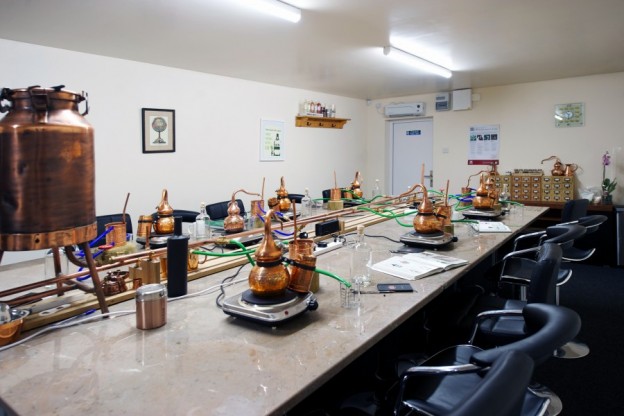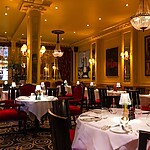Michael Edwards goes back to school, only this time it’s to learn about gin at Nelson’s Gin Distillery
Sticking to any New Year’s Resolution for an entire year takes willpower, particularly when that resolution involves alcohol. So, I was immensely proud of maintaining my 2018 resolution for the entire year.
I vowed only to drink high-quality gin. No potions of juniper berry infused firewater were to pass my lips for 365 days. Anything that carried the merest hint of the 17th Century practice of adding turpentine and sulphuric acid would be rejected. Of course, those additions were outlawed three centuries ago. But the alcohol burn of some supermarket bargain gins makes you think that acid and turps are back in fashion.
My resolution was so successful that I’ve embarked on it again for 2019, much to the chagrin of my diminishing circle of friends. They have discovered that a round at the pub is far more expensive than it used to be.
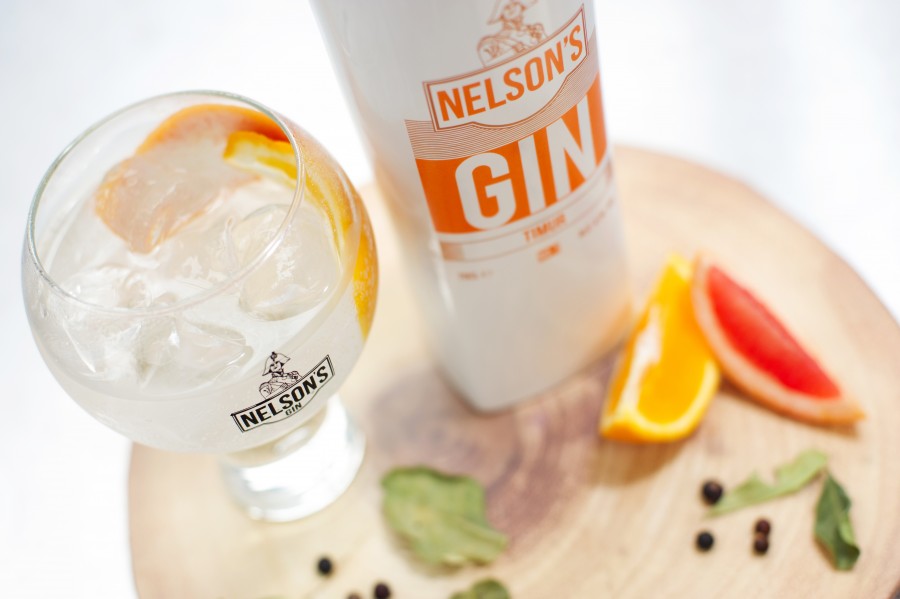
Gin connoisseurs have a saying, “Everyone has a different taste in gin. If you haven’t found your gin yet just keep looking.”
Trouble is that there are just so many gins out there. Since Sipsmith successfully challenged the centuries-old anti-smuggling ruling that a distillery had to produce vast industrial quantities per year to get a licence, ultimately taking their appeal to the European Court, there has been an explosion of craft distilleries.
With over 300 craft distilleries in the U.K., many of them venturing into esoteric flavours such as Bakewell tart, elderflower, lime, lemon, lime, orange and rhubarb, as well as the standard London Dry Gin, that’s a lot of gins to dry. That old line about kissing a lot of frogs to find your prince comes to mind …
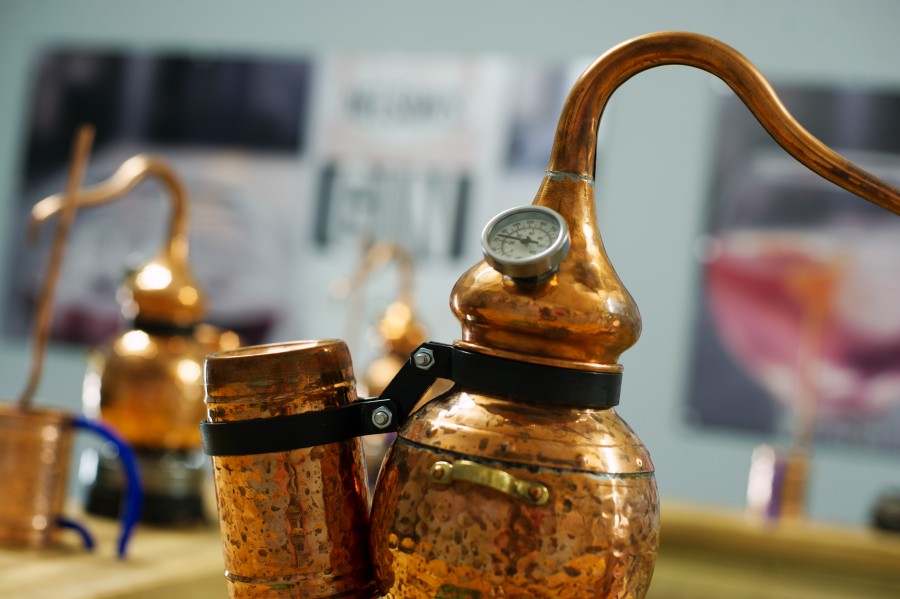
Surely it would save countless hours and a lot of pain to invent your own gin? That is exactly the service that Nelson’s Distillery and Gin School on the outskirts of Uttoxeter are kindly offering.
Nelson’s Gin Distillery name originates from the two centuries when no British naval ship left port without a barrel of gin for the officers. Rank and file sailors survived on rum. Horatio Nelson was so keen on his rum that he founded a distillery on Menorca to maintain the flow.
The Gin school looks a bit like a school chemistry lab that’s blown a century’s budget on 24 copper gin stills: only it smells far more interesting and has a fascinating curriculum.
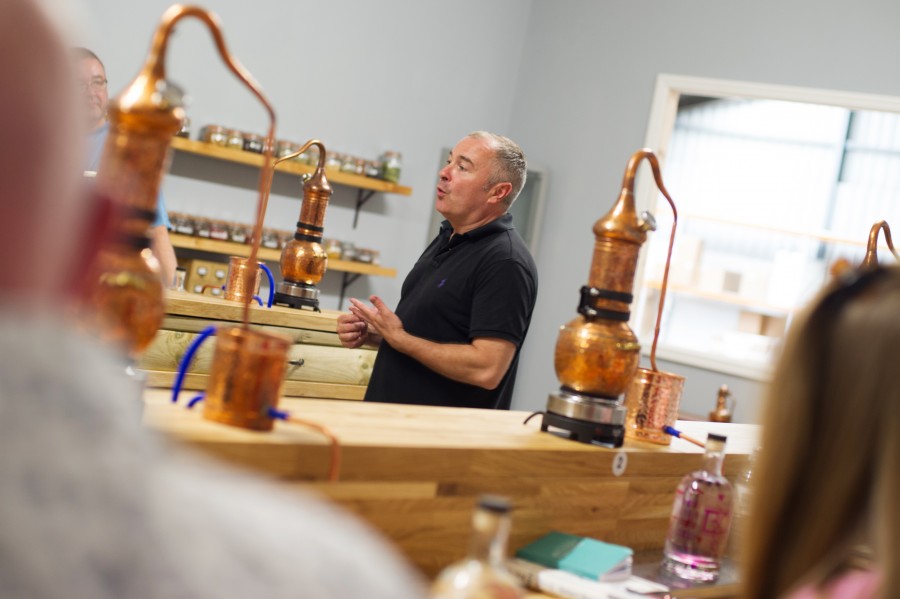
Firstly, it’s best to arrive with some idea of what you want to create. As most bottom of the market gins only contain around half-dozen botanicals there’s plenty of scope for improvement. Nelson’s London Dry Gin No 7 features 27 top-secret botanicals.
And when you are encouraged to roll that distillation round your mouth neat, without tonic, you can distinguish some of the botanicals. True connoisseurs freeze their glasses to avoid melting ice diluting the gin.
Dave, our gin guru, tells the story of a Thai visitor who arrived with his own botanicals to create a gentle Thai spiced gin to complement Thai food. Unfortunately four hours later half the class had created gins featuring kaffir leaves, lemongrass and galangal. Arrive with your theme and stick to it but allow Dave to make some fine-tuning adjustments.
With summer approaching you could look at elderflower and meadowsweet for light top notes, build in some fruit for body then create a finish with a warmer spicy taste. Chilli for a lasting bite or pink peppercorns for a gentler afterglow.
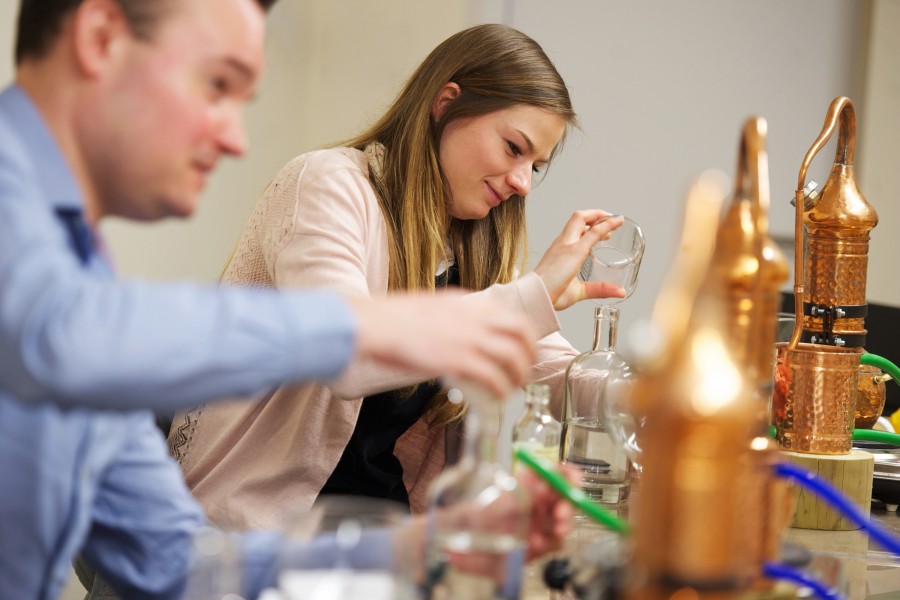
With 60 botanicals on offer, you could go for a sweetshop of cocoa, liquorice and sweet fruits. Thinking ahead you could create a winter warmer: a hint of Christmas Cake marzipan from almond flavoured Tonka Beans, sweet fruits redolent of mincemeat and the final kick from cinnamon hinting at mulled wine.
Orris, angelica and coriander seeds are essentials for stability of oils and blending flavours. And finally, it’s time for juniper: 26 grams for a traditional London Dry style through to 12g for the lightest touch of juniper.
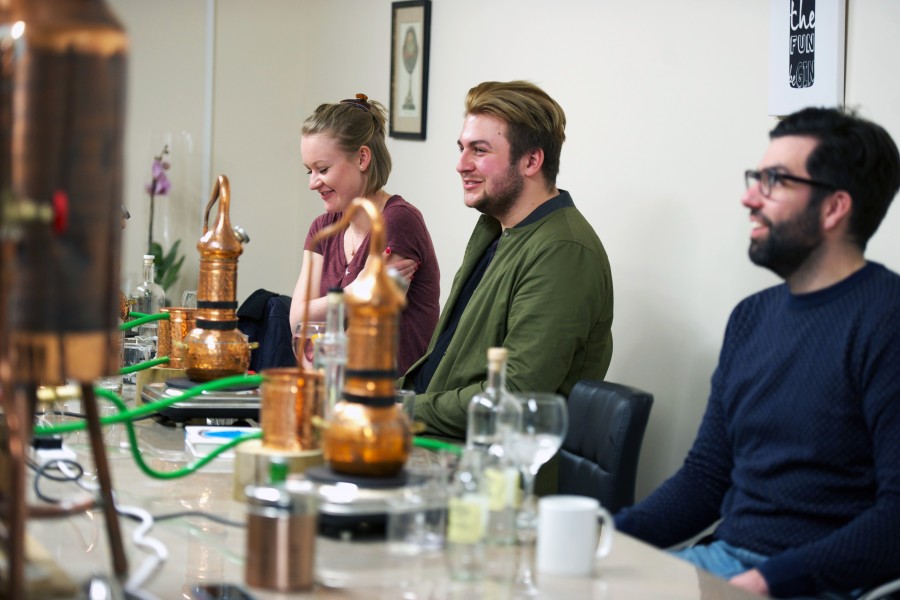
Essentially the botanicals and the alcohol cook with the steam rising through the swan neck before it cools and drips down into a beaker. It’s a working lunch, at your still, as you keep your drip rate regular and taste another Nelson’s gin. Temur is a village high in the Nepalese mountains which gives its name to a warm spiced berry that creates Nelson’s latest gin. The gin scholars greeted with enthusiastic acclaim.
Direct from the still the gin comes out at around 82% proof. Adding filtered water knocks it down to a more civilised 42%.
Finally, the day ends with a Generation Game challenge. Dipping your bottle in wax and sealing it elegantly, without drips.
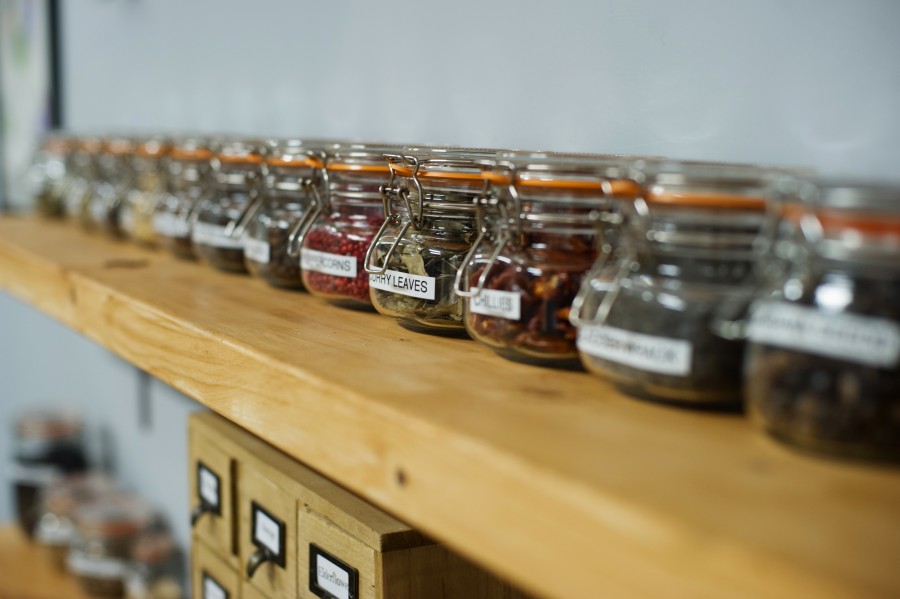
At the end of the day, everyone departs with the bottle of gin they created but that’s far from the end of the story. You can order more bottles as Nelson’s keep a record of your recipe.
By running a craft gin story, The Archers has its fingers on the nation’s pulse. Creating gin becomes a passion, there is always room for experiment and improvement, as we left some scholars were booking in for their next lesson …
Tell Me More About Nelson’s Gin Distillery And School
Nelson’s Distillery & School, Unit 5A, Grindley Business Village, Uttoxeter, Staffordshire ST18 0LR
T: 07399 455436
E: enquiries @nelsonsdistillery.co.uk
A day at Nelson’s Gin Distillery for a single still costs £115 including coffee, lunch, gins and taking away your own bottle.
A Nelson’s Gin Distillery shared still costs £145.
The Hilton at St. George’s Park, Burton-upon-Trent just a 30-minute drive from Nelson’s provides a very comfortable base for your visit. Double rooms, with breakfast, start from £87.

